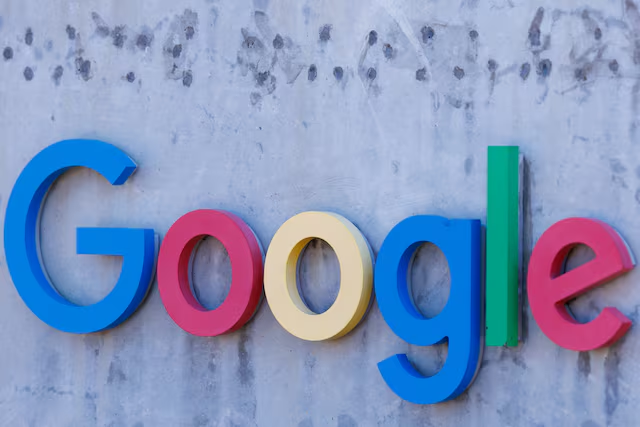- Vape Deals and Discounts
- Flavors and E-Liquids
- Health and Safety
- Top Vape Brands
- Vape Reviews
- Vaping
- Vaping Culture
- Vaping Guides
- Vaping News and Trends
Google Wins UK Injunction Over YouTube Block on Russian Broadcasters

1. Introduction
In a landmark decision, Google successfully secured an injunction from a UK court, compelling the company to reinstate several Russian broadcasters on its YouTube platform. This ruling marks a significant turning point in the ongoing debate over content moderation and platform accountability, especially regarding geopolitical tensions. The case geek bar meloso highlights the delicate balance between adhering to national laws and the operational flexibility needed to manage a global digital platform.
2. Background of the Case
The origins of the dispute lie in YouTube’s decision to remove content from Russian state-controlled media outlets, following directives from Western governments. Amid escalating political tensions in Europe, YouTube, owned by Google, enacted the block as part of a broader move to limit the spread of misinformation, particularly related to the conflict in Ukraine. The removal of these Russian broadcasters stirred a wave of legal challenges from the affected parties, with Russia accusing YouTube of censorship and bias.
The UK case was filed when Russian broadcasters appealed to the courts, arguing that YouTube’s actions violated their rights under international law, particularly the freedom of expression. The situation gained further momentum when UK regulators, aware of the international dimension of the dispute, took steps to challenge the removal of the channels.
3. The Role of YouTube in Global Media
YouTube, as a global platform, has become an essential channel for news, entertainment, and public discourse. With billions of active users across different countries, it holds a critical position in the digital media ecosystem. This influence is not limited to entertainment or cultural content but extends to the realm of political messaging, where governments and organizations seek to use the platform to reach global audiences.
The platform’s algorithm-driven recommendation system also plays a pivotal role in shaping global narratives, making it a significant tool for shaping public perception. In light of this power, YouTube is under constant scrutiny to moderate content responsibly, especially when it concerns politically sensitive material that could have broader societal consequences.
4. The UK Legal Challenge
The legal challenge against YouTube’s decision to block Russian broadcasters focused on whether the platform had overstepped its authority. Google argued that its actions were in line with the platform’s policies regarding disinformation, particularly related to the ongoing war in Ukraine. However, the UK court ruled that YouTube’s blanket removal of Russian broadcasters was an overreach, given the legal frameworks that protect media freedom.
The injunction effectively required YouTube to reverse its decision, sparking a significant debate about the limits of content regulation in the digital age. While Google defended its position by citing the need to protect users from harmful content, the ruling brought to the fore questions about the role of tech giants in influencing global politics.
5. The Legal Basis for the Injunction
The UK courts found that Google had violated certain aspects of UK media law, specifically those protecting the free speech of Russian state-controlled broadcasters. The injunction was granted under the premise that YouTube’s actions had disproportionately silenced legitimate media channels without sufficient justification.
Central to the ruling was the interpretation of freedom of expression within the digital realm. The court pointed out that while YouTube, as a private entity, has the right to enforce community guidelines, it must also respect the regulatory environment of the countries in which it operates. This led to the granting of the injunction, which required YouTube to reinstate the blocked channels until further legal clarification could be achieved.
6. Implications for Russian State-Controlled Media
For Russian state-controlled media, the YouTube block represented not only a loss of an important communication tool but also a significant blow to their ability to influence global audiences. The removal of Russian broadcasters from YouTube meant that millions of viewers were no longer exposed to the state-sponsored narratives they sought to promote.
Despite this, the UK ruling opens up new avenues for Russian media to challenge content moderation decisions, potentially leading to further legal battles. While geek bar Google complied with the injunction, it also laid bare the vulnerability of global platforms to national laws, especially when dealing with politically sensitive content.
7. Google’s Global Strategy on Content Moderation
This case also sheds light on Google’s broader strategy when it comes to content moderation. The company, like many tech giants, is often caught between complying with local laws and maintaining a global standard for what constitutes acceptable content. In some cases, Google has been forced to adopt policies that are seen as politically neutral; in others, it has had to take more aggressive steps to comply with regulatory demands.
In the wake of the UK injunction, Google may need to recalibrate its approach to content moderation. The balance between adhering to local laws and maintaining a platform open to diverse viewpoints will continue to be a challenging issue. Furthermore, as the company faces increasing pressure from governments worldwide, it may adopt more transparent and nuanced moderation practices.
8. The Future of Online Content Regulation
The Google-YouTube case in the UK raises important questions about the future of content regulation. As governments across Europe and beyond move to tighten regulations on digital platforms, the industry must navigate a complex web of national laws and international standards. The growing calls for greater accountability, especially in terms of political content, signal that tech companies will face increasing scrutiny in the coming years.
In the future, platforms like YouTube could see more legal challenges, potentially leading to a more fragmented global content landscape. This would require companies to adapt to diverse regulatory environments, balancing freedom of speech with the need for responsible content governance.
9. Conclusion
Google’s victory in securing an injunction against YouTube’s block on Russian broadcasters highlights the complexities of content moderation in the digital era. It underscores the growing tension between global digital platforms and local laws, particularly when it comes to politically charged content. The outcome of this case will likely reverberate through future legal disputes and shape the geek bar pulse landscape of online content regulation for years to come. As the debate over free speech and platform accountability continues, tech giants will face mounting pressure to find solutions that respect both global standards and local legal frameworks.




